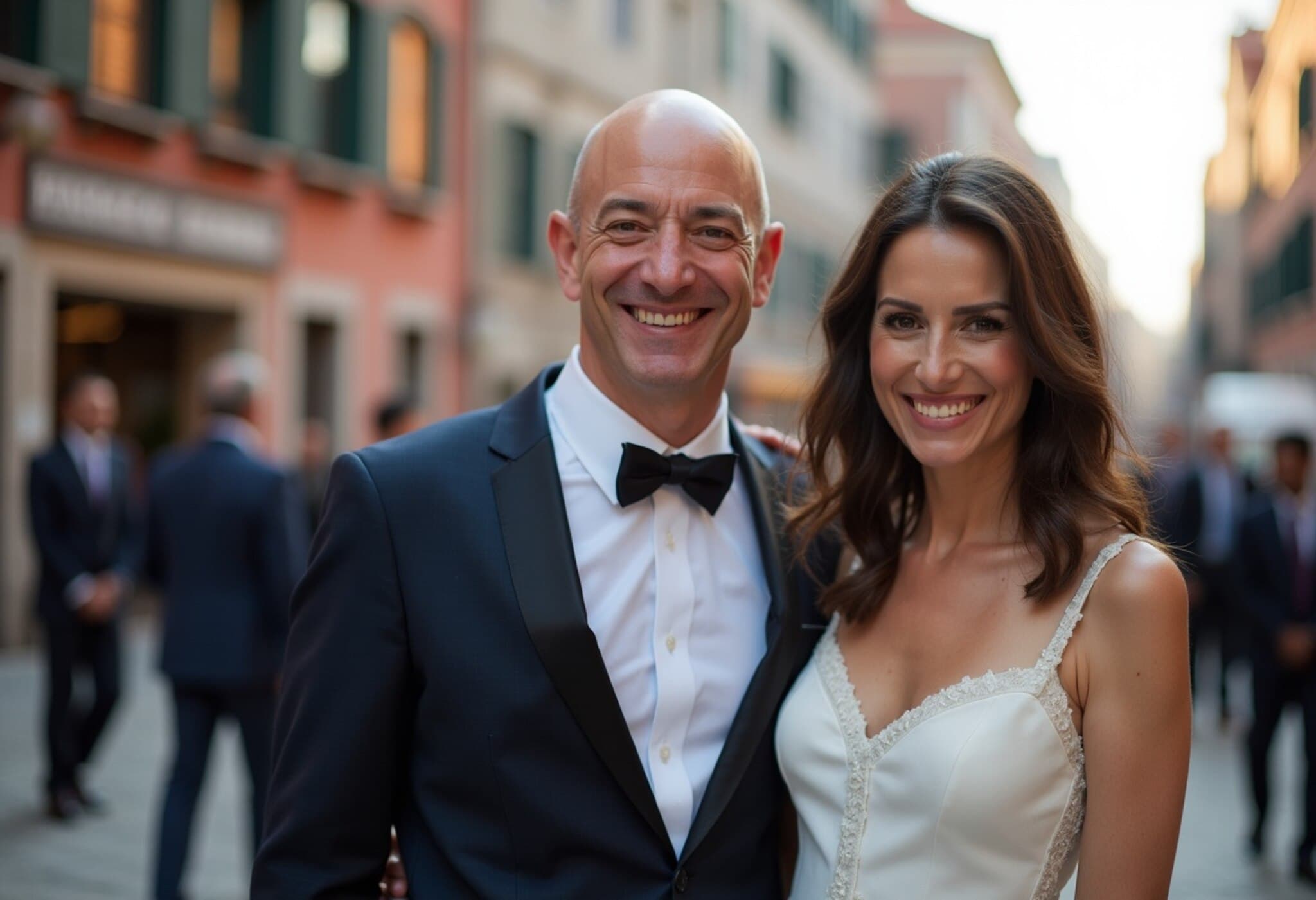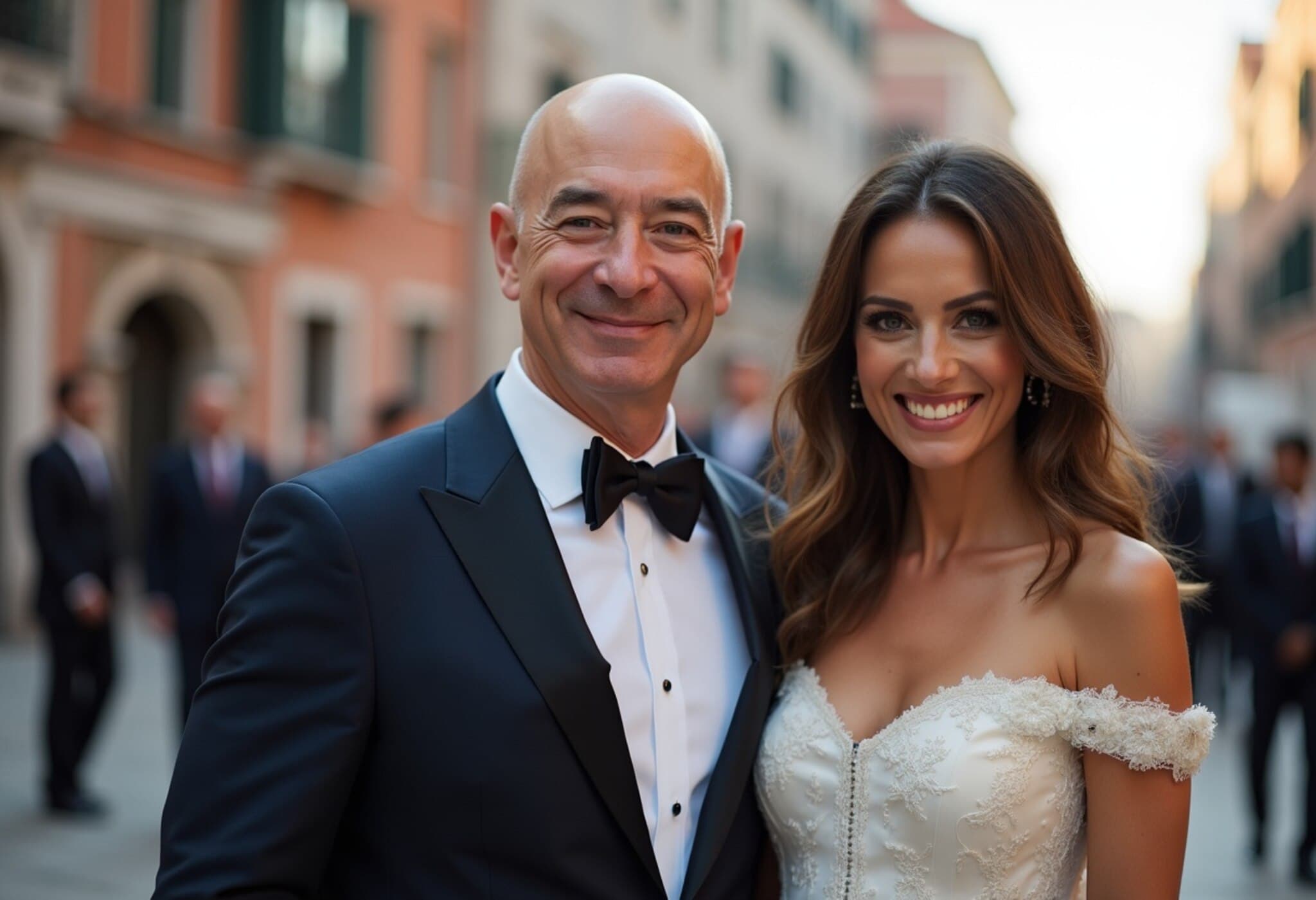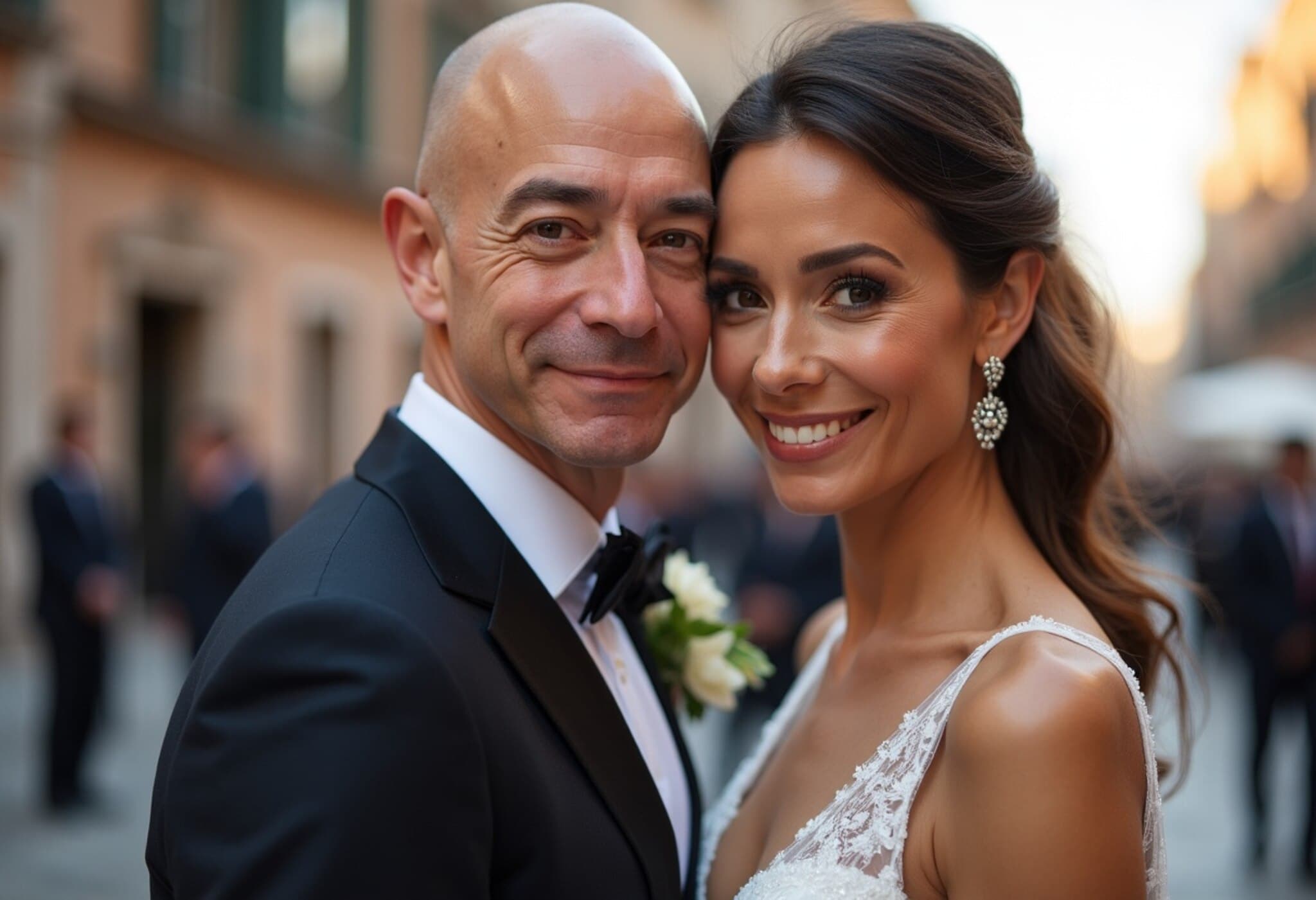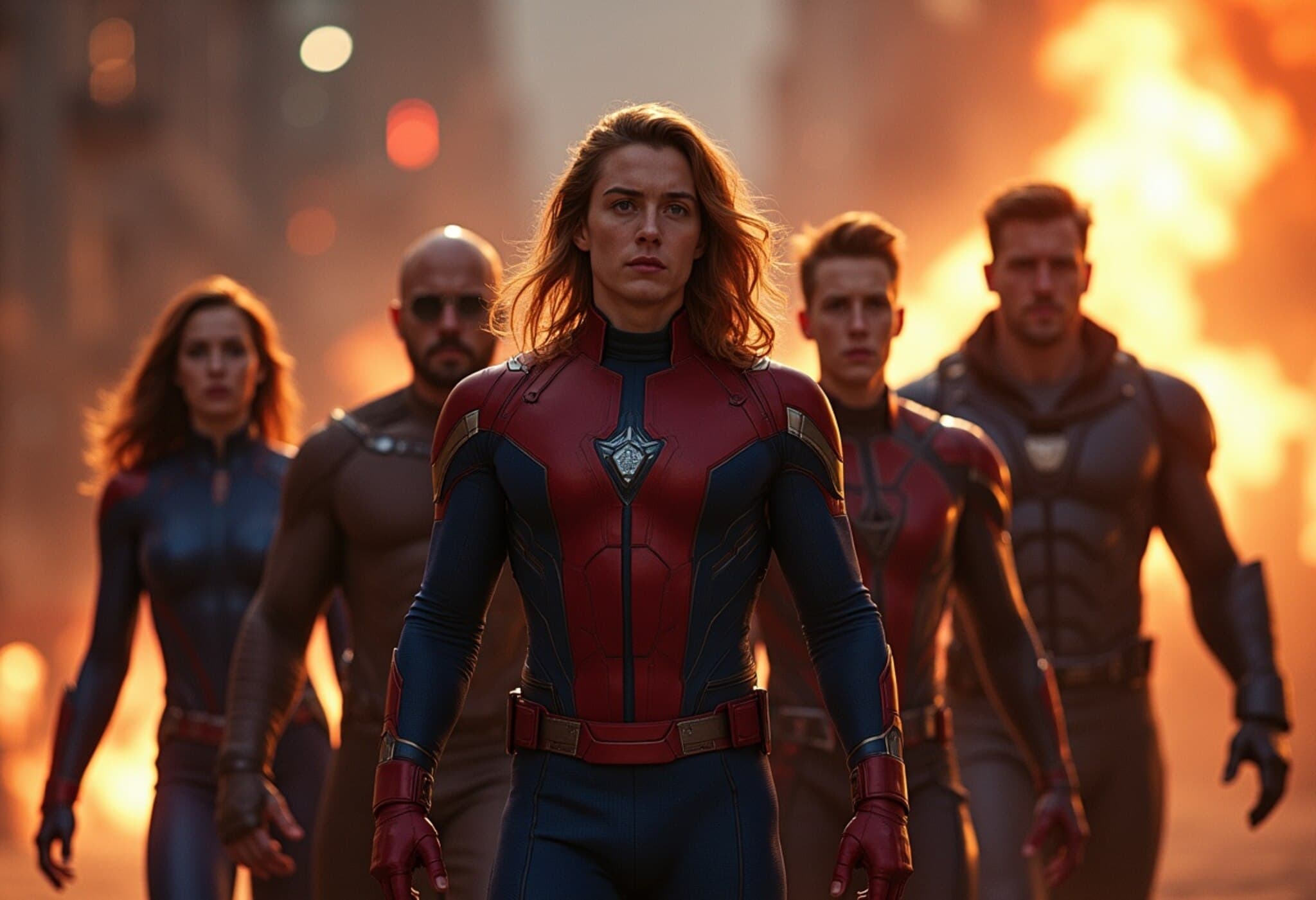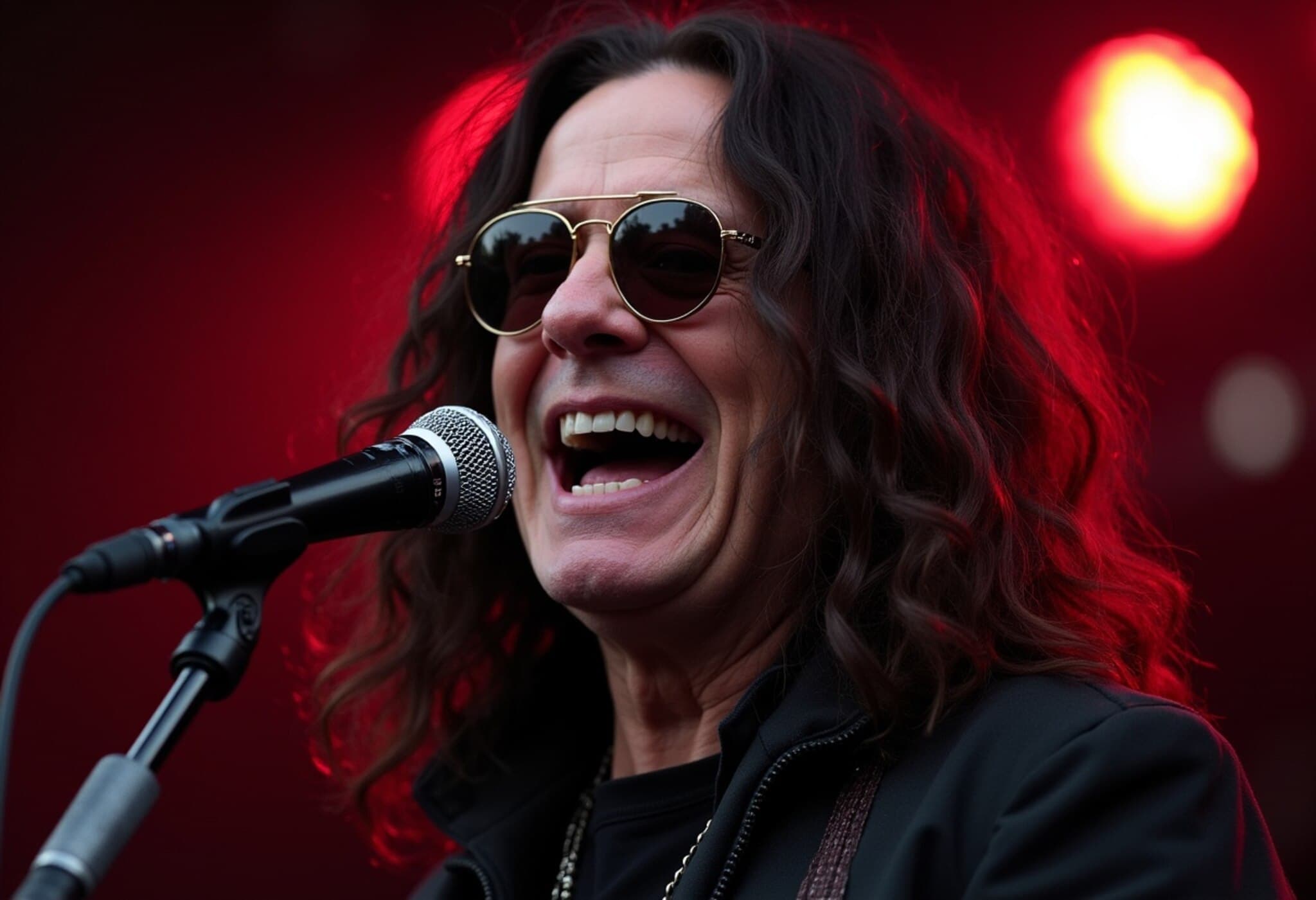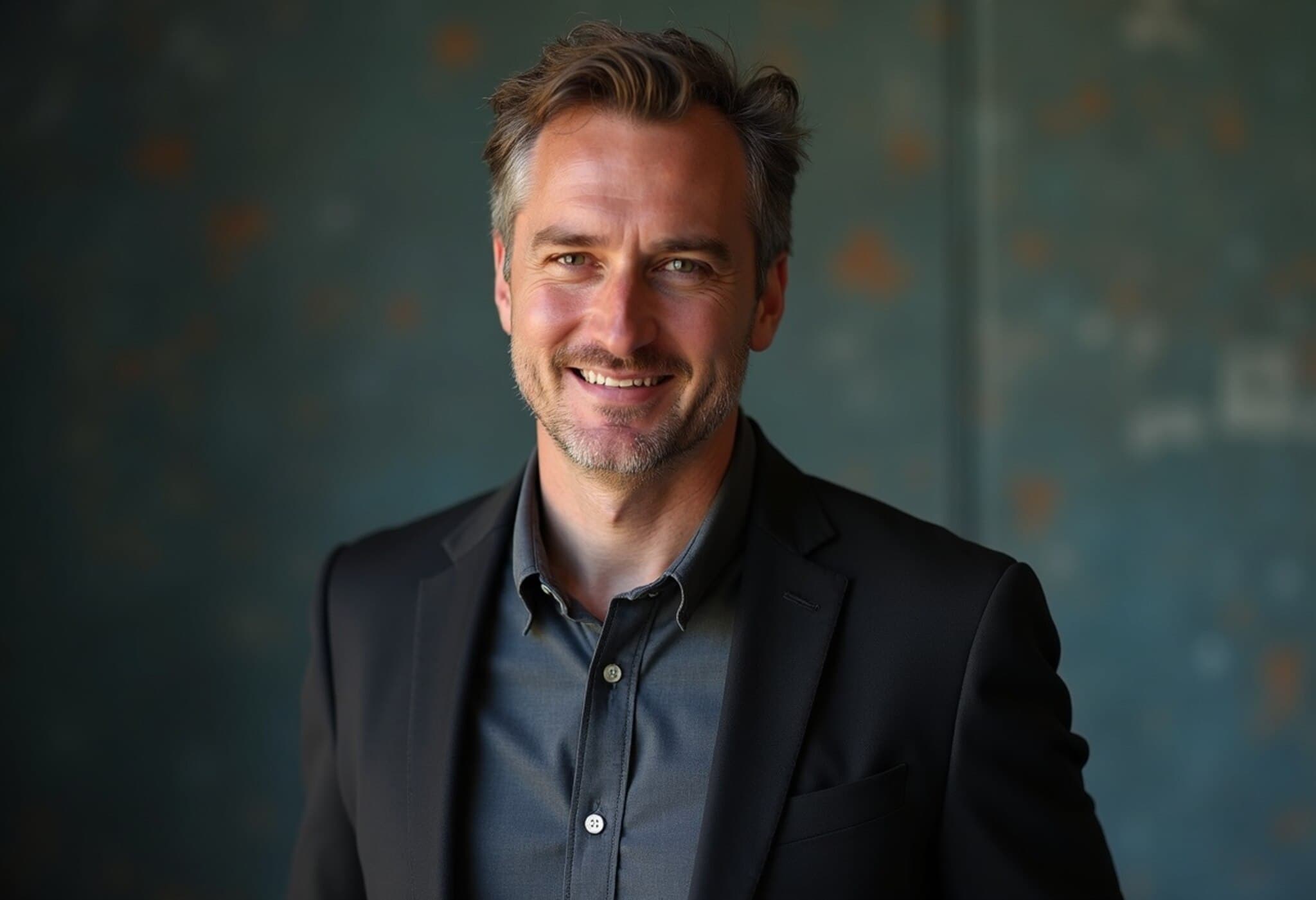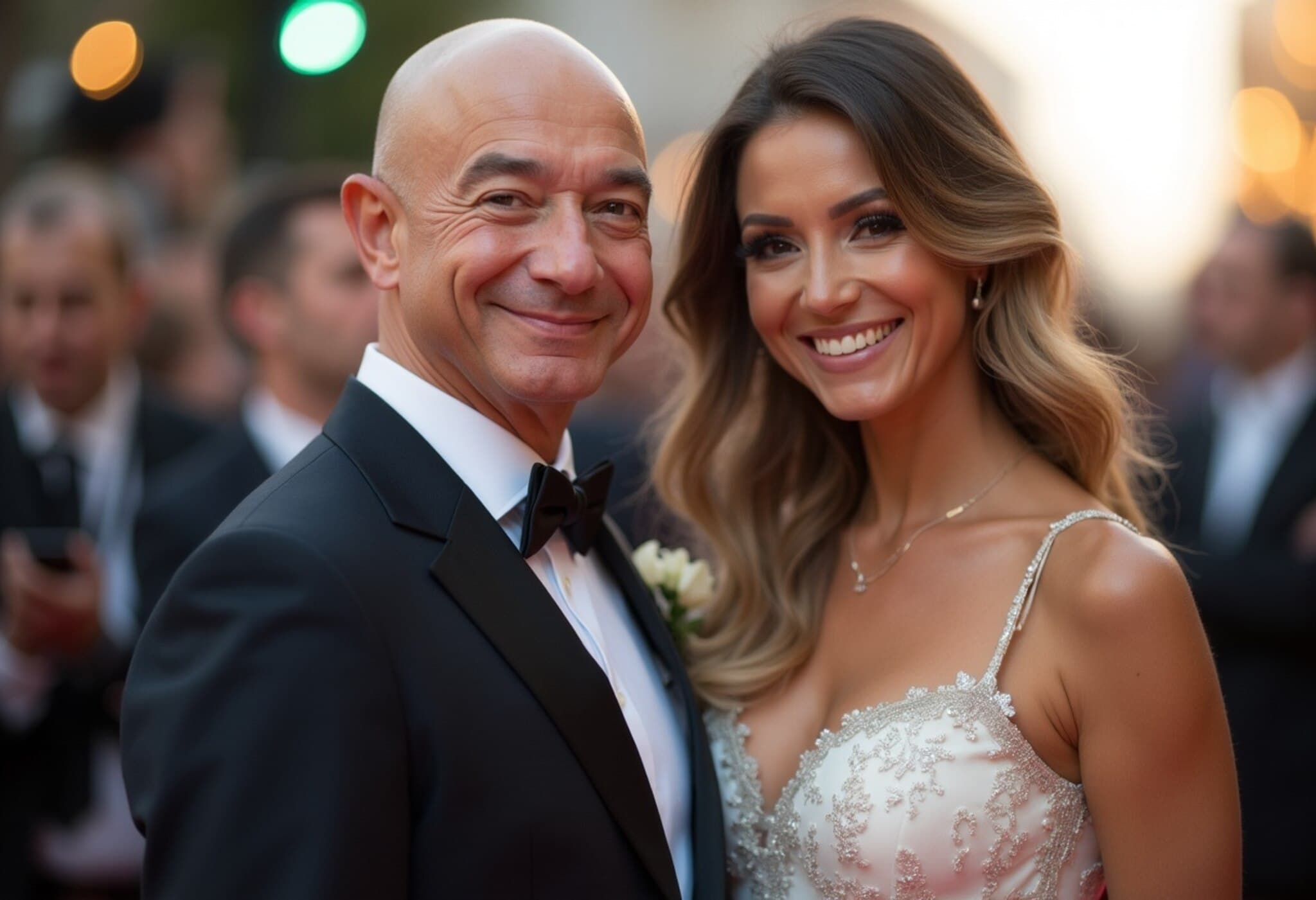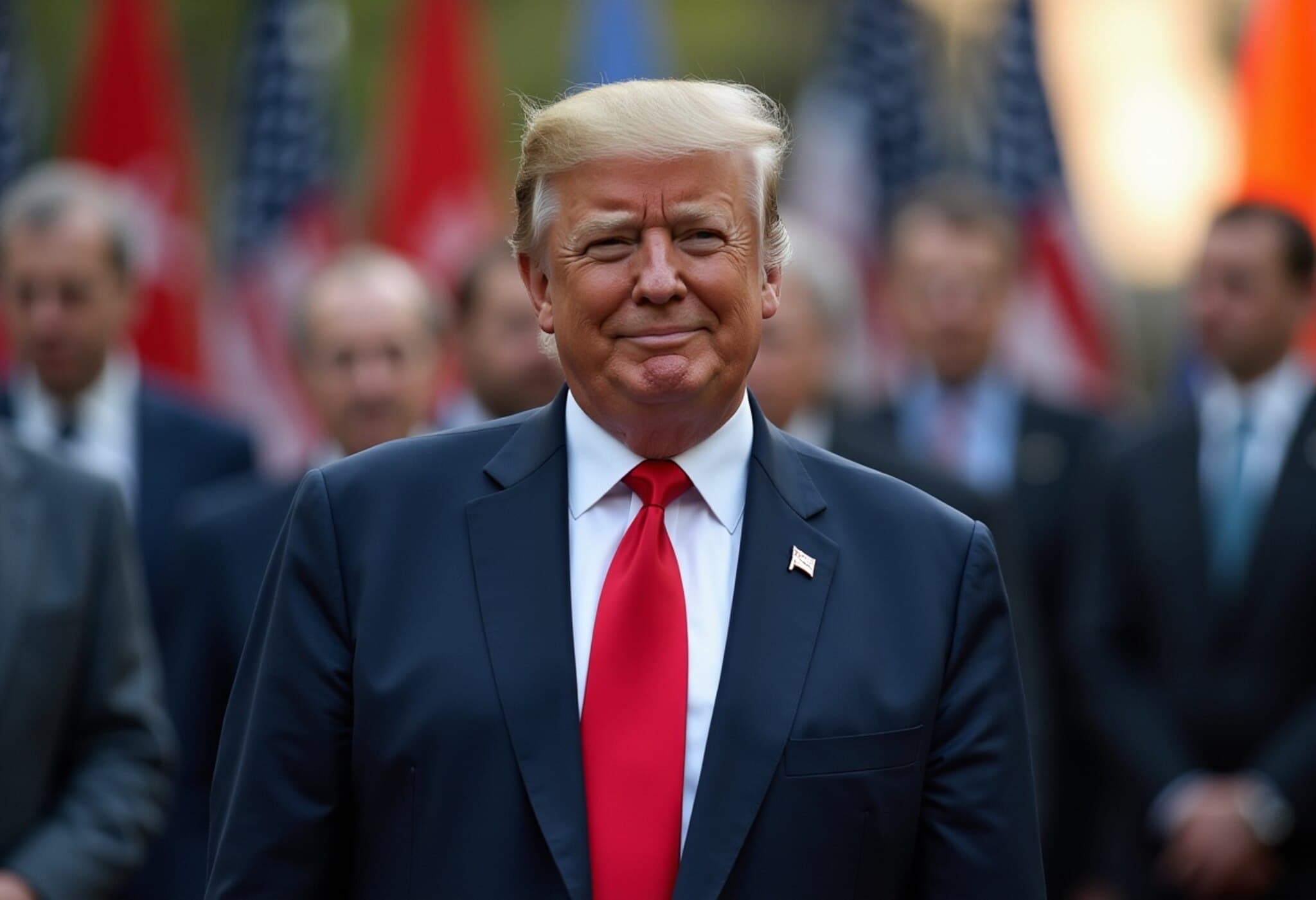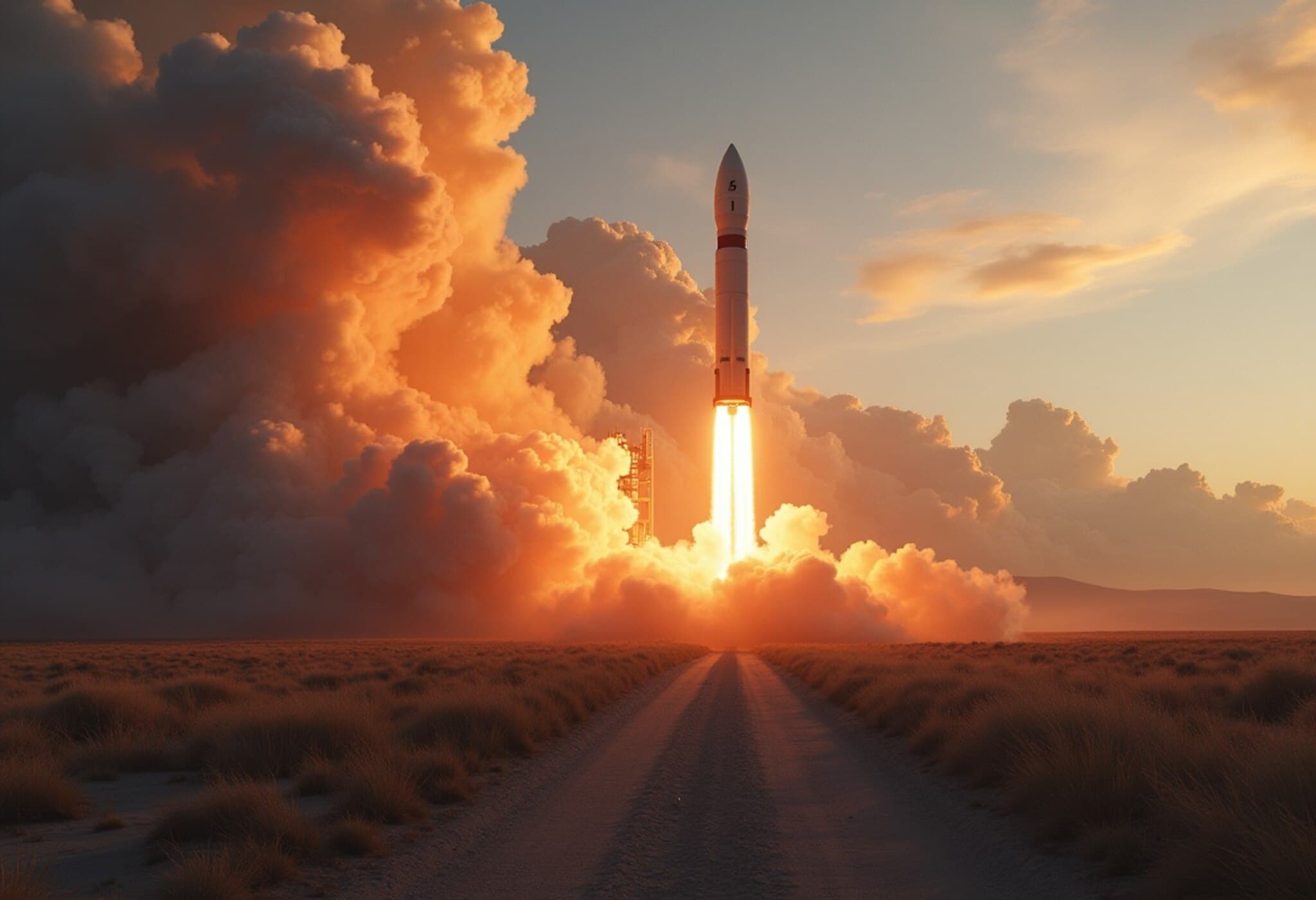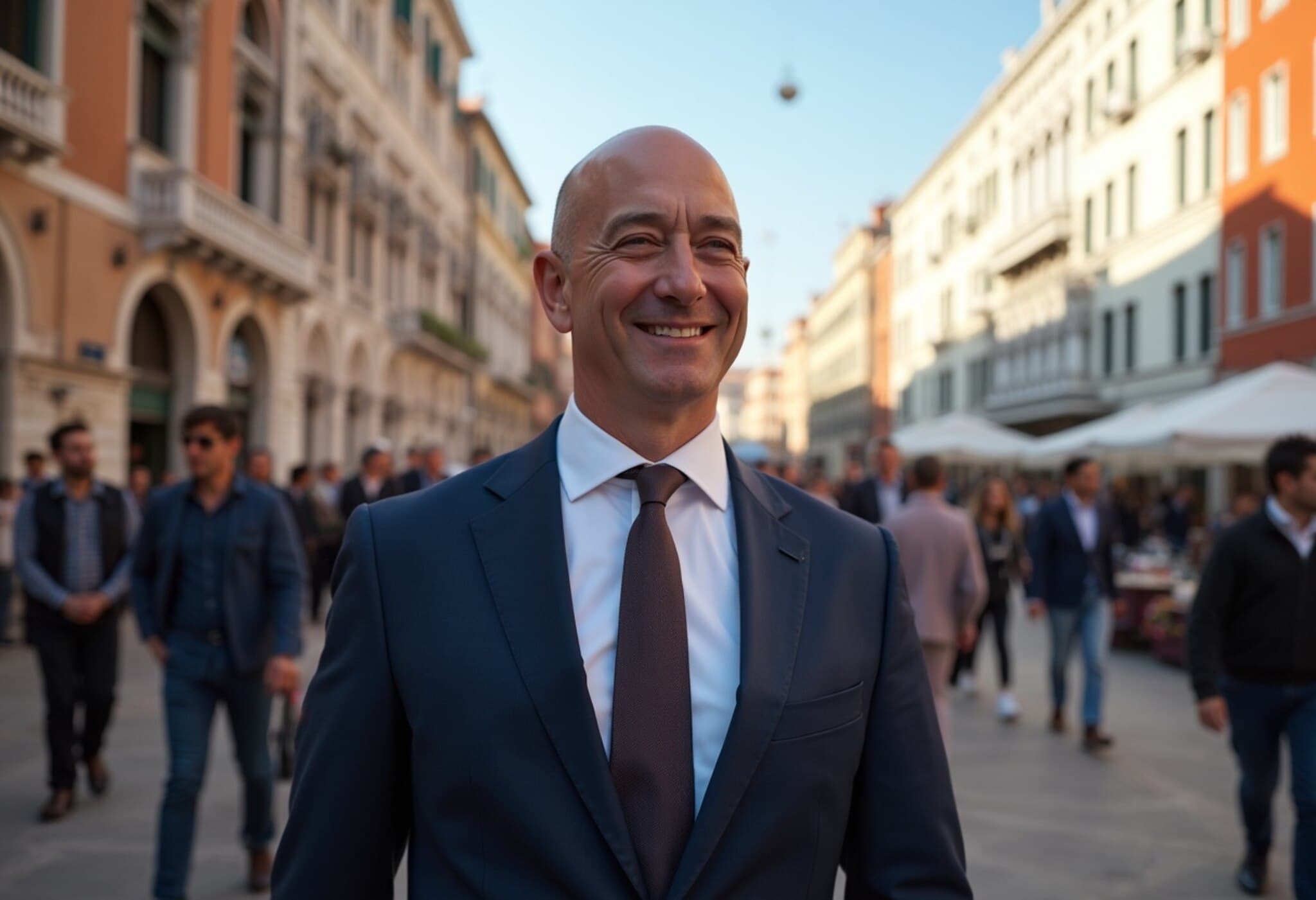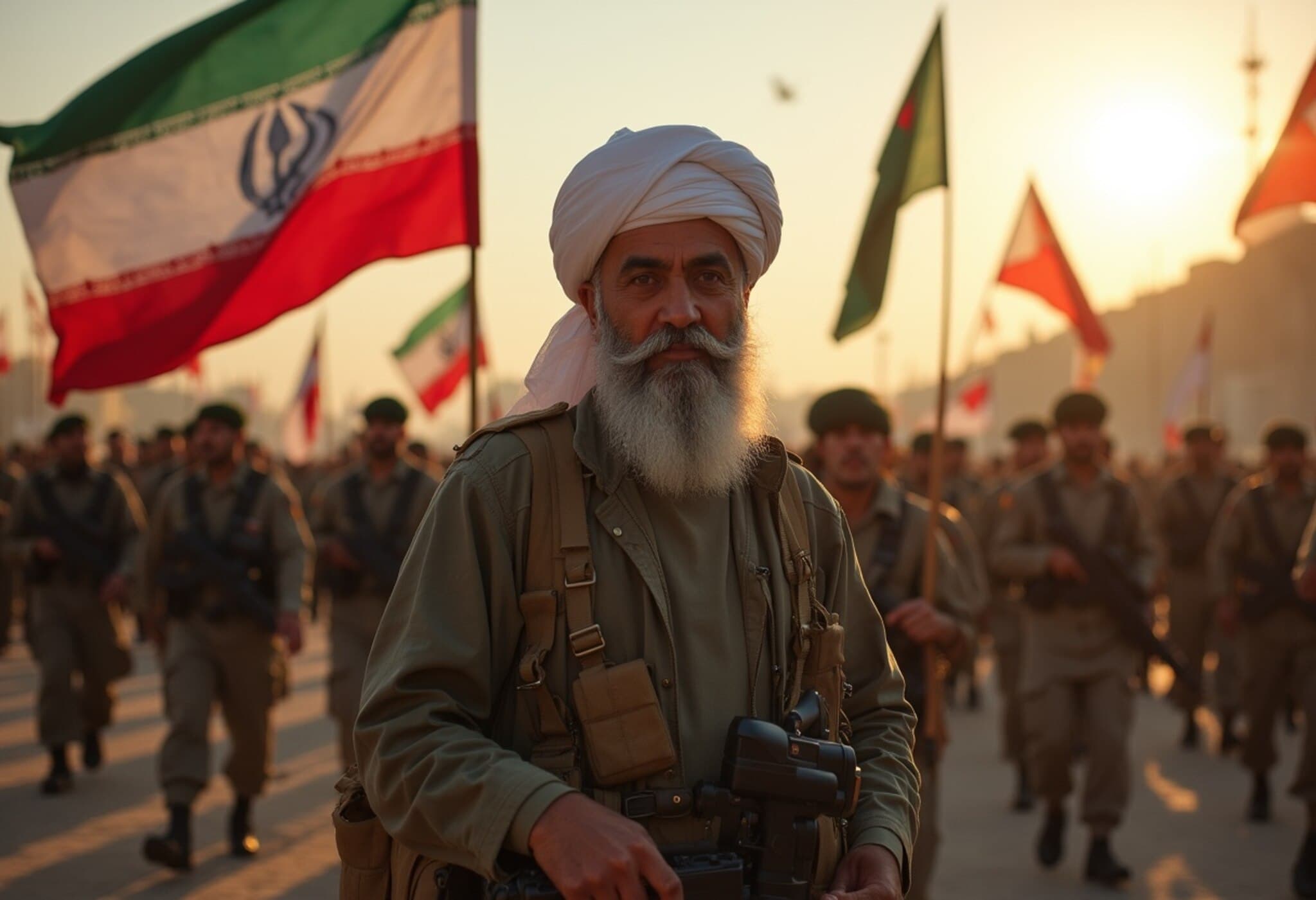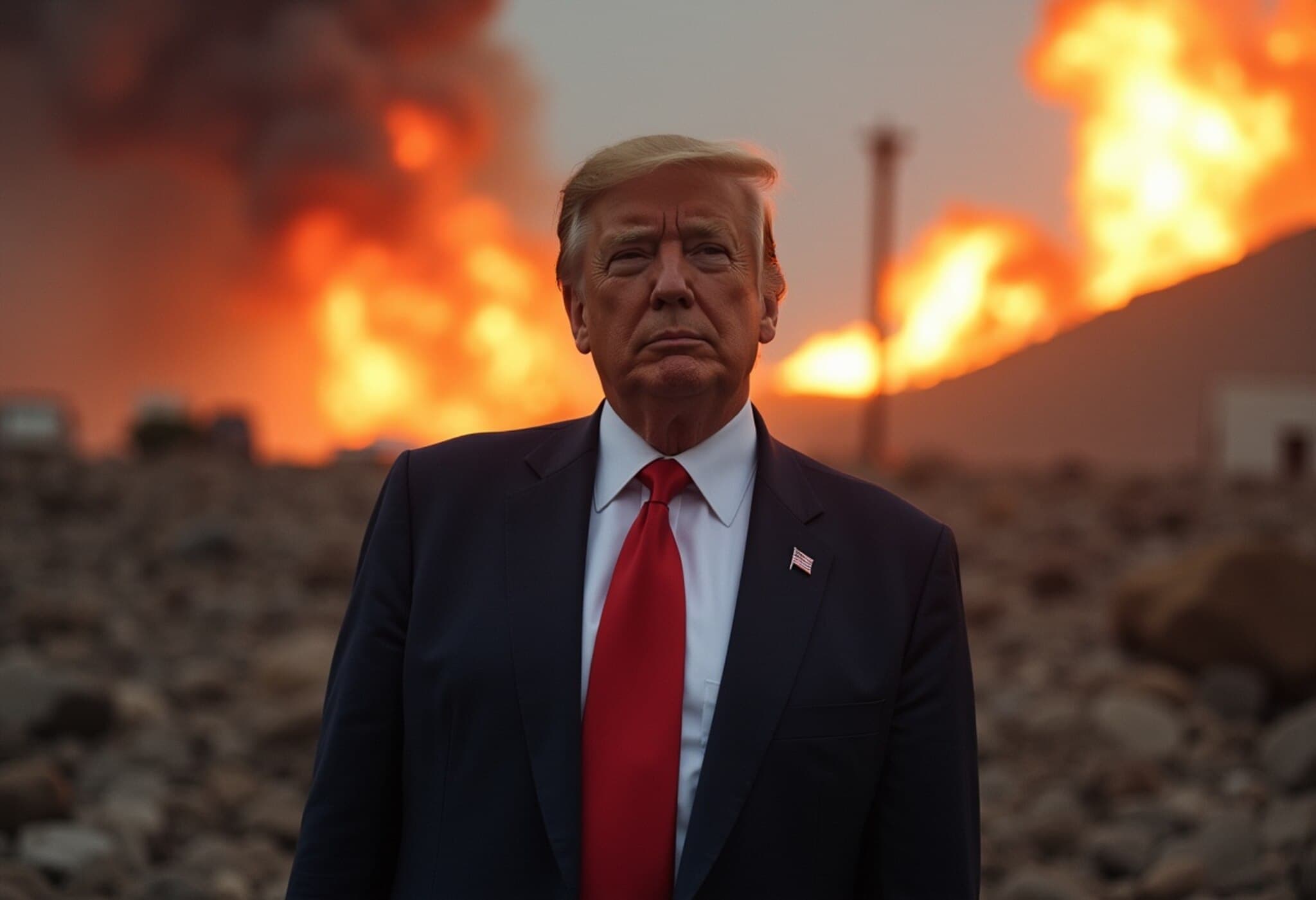Venice Welcomes a Lavish Celebration Amidst Local Concerns
This week, Venice plays host to a high-profile, three-day wedding celebration as Amazon founder Jeff Bezos and Lauren Sanchez gather around 200 guests for their extravagant nuptials. The couple’s choice of the UNESCO heritage city has ignited divided opinions, with excitement over the star-studded event tempered by concern from locals wary of the environmental and social impact.
The Grand Affair: Glimpses and Guests
The wedding festivities, which began on Thursday and will continue through Saturday, are rumored to culminate at a secret, historic venue—likely either the Church of the Abbey of Misericordia or the sprawling Arsenale shipyard complex, a nod to Venice’s rich maritime past. Security remains tight-lipped, keeping details closely guarded.
Among the glittering guest list are renowned celebrities reportedly including Leonardo DiCaprio, Mick Jagger, Kim Kardashian, Oprah Winfrey, Orlando Bloom, and Ivanka Trump. The city's luxury hotels have been reserved to accommodate these high-profile visitors, while at least 95 private jets are slated to land at Venice’s Marco Polo airport.
Bezos’s superyacht, Koru, is expected to dock near San Giorgio Maggiore island, a picturesque spot opposite St. Mark’s Square, which has been booked exclusively for the wedding duration.
Celebrity Extravaganza or Environmental Dilemma?
While Venice has hosted lavish weddings before—most notably George Clooney’s 2014 celebration—this latest event draws sharper criticism. Environmental advocates and many locals fear that this influx of elite visitors exacerbates the city’s challenges, such as overcrowding, overtourism, and the escalating housing crisis that forces residents out.
Venice typically sees around 100,000 overnight tourists during peak times, along with tens of thousands more who arrive on cruise ships for short visits. Protesters argue that such events commercialize the city’s charm at the expense of its community and sustainability.
Environmental groups have openly condemned the extravagant carbon footprint associated with the wedding. Greenpeace criticized the celebration’s excess amid Venice’s vulnerability to climate change, highlighting the city’s ongoing battle with rising waters and infrastructure strain.
Further controversy surrounds Sanchez, who has publicly advocated for climate action yet recently flew to space aboard a rocket developed by Bezos’s space venture, adding fuel to the environmental debate.
Local Voices: Divided Opinions on the Impact
Activists have taken to Venice’s iconic St. Mark’s Square, displaying banners demanding fair taxation for such high-profile events. Meanwhile, the “No Space for Bezos” movement warns that treating Venice as a private ballroom ignores the city's fragile ecosystem and the plight of its residents.
Tommaso Cacciari, leader of the protest group, contends that these celebrations accelerate Venice’s depopulation and threaten its future, pledging to physically oppose the event by blocking waterways if necessary.
On the flip side, Venice’s tourism officials and supporters of the wedding emphasize the economic benefits. Simone Venturini, the city’s tourism councillor, downplayed any disruption, noting such occasions are commonplace and manageable. Local artisan involvement in the festivities, including historic Venetian craftsmen and famed pastry maker Rosa Salva preparing traditional “fishermen's biscuits,” further ground the event in Venetian heritage.
Some locals, like Michele Serafini, welcome the infusion of funds and attention, believing the wedding's economic boost outweighs potential drawbacks. Their pro-event group, “Yes Venice Can,” advocates for harnessing such opportunities responsibly.
Conclusion: A City at a Crossroads
Jeff Bezos and Lauren Sanchez’s opulent wedding in Venice draws a sharp spotlight on the balancing act between luxury tourism and preserving a city steeped in history and vulnerable to environmental upheaval. As grand yachts and private jets converge, Venice’s residents and activists grapple with the question: can a cherished but fragile city accommodate the demands of today’s global elite without sacrificing its future?


